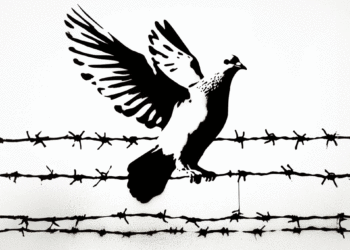Following the release of Gilad Shalit, Israel should begin negotiations with Hamas
By Moshe Git
Regarding the exchange of more than 1,000 Palestinian prisoners for Gilad Shalit, Israel may just as well go ahead and free all of its Palestinian prisoners. Incarceration no longer constitutes deterrence; and setting incarcerated Palestinians free in exchange for kidnapped Israelis creates precedents that endanger all Israelis.
An across the board release would be a boon for Israel’s economy. According to recent United States figures, it costs close to $50,000 annually to incarcerate a person. Israel has around 5,000 Palestinians in prison. Assuming that Israel’s cost of incarceration is about half as much as the cost in the U.S., Israel could save millions of dollars by releasing those prisoners.
Perhaps the greatest contribution of the Shalit deal is the fact that the self- imposed Israeli taboo of not talking to Hamas has cracked. During the last year or so Israel has been negotiating and talking with Hamas, while Abu Mazen of the Palestinian Authority, Israel’s hitherto pet Palestinian, shunned any talks.
Haaretz columnist Gideon Levy recently asked: “Why is it permissible to negotiate with Hamas over the fate of a single soldier yet prohibited to do so over the fate of two bleeding peoples? How concerned we are about the fate of a single soldier. And what about the fates of many soldiers, of an entire army, an entire people?”
There is also a doubt about Israel’s sincerity in caring about the fate of the Israeli citizen Shalit. The Israeli citizen Odeh Tarbin, a Bedouin, went to Egypt to visit his sister and was arrested and accused of spying by Egyptian interrogators. He was sentenced to 15 years in prison. This was about 10 years ago, and he is still there. There is no international campaign on his behalf.
If peace with the Palestinians can be attained at all, it can only be through negotiations with Hamas. The Palestinians have legitimate gripes. Hamas represents those gripes better than does the Palestinian Authority. Israel has been trying to stifle expressions of Palestinian protest, but it doesn’t work and it can’t work.
In a mass celebration at the Israeli Arab town of Umm al-Fahm, welcoming the impending release of Israeli Palestinian terrorists (as part of the Shalit deal), Palestinian and Islamic flags were raised all over. No Israeli flag or even a token symbol of Israeli sovereignty was to be seen. And this took place not in Hamas territory, not even in Abu Mazen’s territory, but within the borders of the state of Israel. We may not like it, but we can’t afford to bury our heads in the sand.
For more than a decade, I have advocated that if Israel wishes to speak with the Palestinians at all, it should speak with Hamas rather than with the PA. Israel was instrumental in creating Hamas, then turned its back on that organization, after Hamas decided that it didn’t want to continue to be Israel’s vassal. Israel’s animosity towards Hamas has led to the Islamist group’s radicalization. It was like a self-fulfilling prophecy. Now Israel has another chance.
Hamas has lost ground in Syria and in Iran. Hamas’ leaders, Khaled Meshaal and Dr. Mahmoud al-Zahar (who lost two sons fighting Israel), have granted interviews to the Israeli press. They did not express recriminations toward Israel.
Let Israel release more prisoners as a goodwill gesture. Let Israel approach Hamas as equals and with mutual respect. Years before Ismail Haniya became Hamas’ prime minister, in a democratic election, he hosted Israeli reporter Shlomi Eldar in his Gaza home. He told the reporter that he would never let his sons become terrorists. Then, later, instead of congratulating him on winning the Palestinian elections, Israel launched a mud-slinging campaign against the Hamas leadership.
Let’s turn the Shalit debacle from a lemon into lemonade by continuing the momentum of having civil interaction with Hamas.
***
Moshe Git lives in Minnetonka.
(American Jewish World, 10.28.11)



















